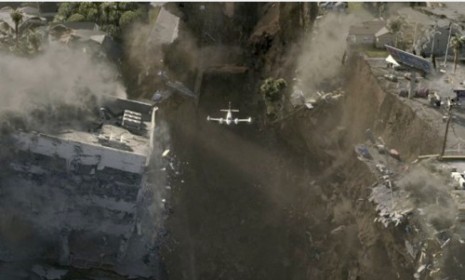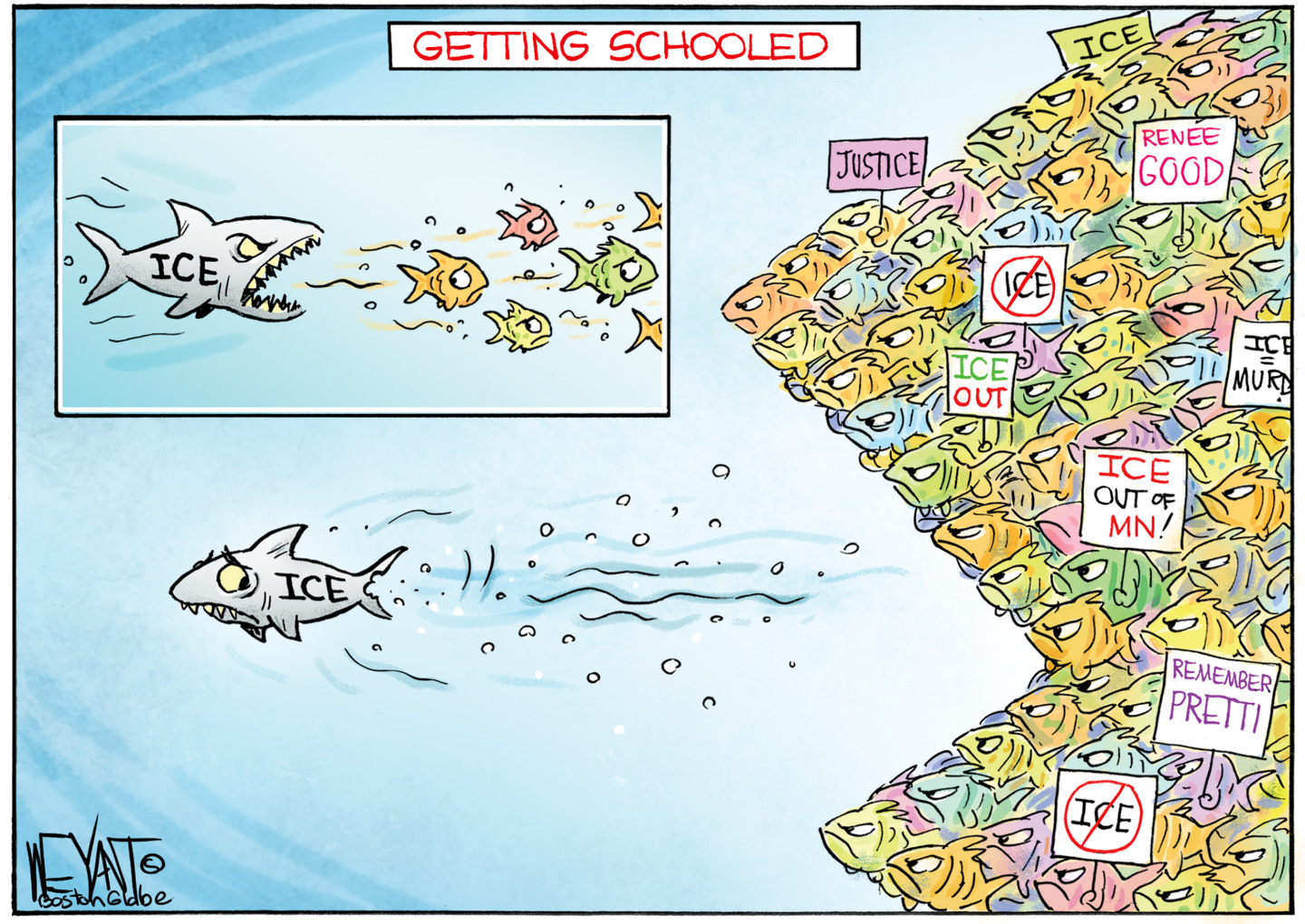Quake watch: is America next?
Two major earthquakes have caused devastation in Haiti and Chile. Will America be the next to suffer "The Big One"?

The devastating earthquakes in Chile and Haiti have led North American seismologists to look closer to home. After all, the US lies on several major fault lines, and has suffered very strong earthquakes throughout its history. (Watch raw footage of the Chilean earthquake.) A complete guide to the likelihood of "The Big One" striking the continental USA:
Is the USA at risk from a high magnitude quake?
Yes. According to former FEMA director James Lee Witt, an earthquake happening in the United States "is not a matter of if, it is a matter of when." The US Geological Survey (USGS) says the same thing.
The Week
Escape your echo chamber. Get the facts behind the news, plus analysis from multiple perspectives.

Sign up for The Week's Free Newsletters
From our morning news briefing to a weekly Good News Newsletter, get the best of The Week delivered directly to your inbox.
From our morning news briefing to a weekly Good News Newsletter, get the best of The Week delivered directly to your inbox.
Where is most at risk?
According to geologist Thomas L. Holzer, two faults in the USA have the capacity to cause earthquakes of a similar magnitude to the Chilean quake. They are the Aleutian fault zone in Alaska and the Cascadia fault zone, which runs from northern California to Washington.
What about the San Andreas fault?
The other major Californian fault, which famously provoked the 7.1 magnitude earthquake in Santa Cruz in 1989, is a smaller fault which "appears to rupture along shorter segments and generate slightly smaller earthquakes," according to Holzer.
A free daily email with the biggest news stories of the day – and the best features from TheWeek.com
I don't live on the West Coast or in Alaska. Am I safe?
Not necessarily. Some seismic experts say the New Madrid fault, which runs along some of the main commercial ports on the Mississipi, "will move again in the next 50 years." This could cause widespread destruction in Illinois, Indiana, Missouri, Arkansas, Kentucky, Tennessee, and Mississippi.
Have we had earthquakes as strong as Chile before?
Stronger. The quake that hit Prince William Sound, Alaska in 1964 was 9.2 magnitude - the second strongest on record since 1900, according to the USGS. Three of the ten strongest earthquakes on record occurred in Alaska.
When is the next serious quake likely to happen?
There's no easy answer, unfortunately. One USGS expert, Brian Atwater, puts the risk of an earthquake in Washington at "about one in 10... across the next 50 years." Another study says there is a 99.7% chance of California suffering a quake of 6.7 magnitude over the next 30 years.
How much warning will we get?
If we are lucky, a few seconds. "We don’t have any good way to predict earthquakes," says Jim Dieterich, chair of the USGS National Earthquake Prediction Center in Audubon Magazine. “In terms of short-term warning—from a few days or weeks—with high reliability, we’re just not there at this point." California's 2004 earthquake occurred without a single precursive quake. But even a handful of seconds could be useful - in Japan, trains stop as soon as a quake occurs due to an innovative early warning system.
How prepared is the USA?
It depends on where you live. One FEMA administrator told the CS Monitor that California has "outstanding institutional preparedness for a major disaster." But the "fragile state" of America's infrastructure elsewhere means the Chile quake should be a "wake-up call," according to Dr Marcia McNutt of the USGS.
Are our buildings earthquake-proof?
Not all of them. Even though California instituted one of the "best building codes and construction practice in the world" after quakes in the 70s and 80s, more than 80% of its buildings were constructed before then. An Oregon study said over 1,000 of its state buildings including schools and hospitals would be at risk of collapse in a major quake. And the impact of even a "moderate" (i.e 6.5 magnitude) quake in built-up areas of the Central and Eastern US is of "real concern," according to seismologist Mary Lou Zoback, as their buildings have no structural protection. In the unlikely event of a 6.5 quake hitting New York, it would likely cause "more than $1trillion damage" and untold deaths.
Can our infrastructure withstand a quake?
No, and this would be where a large earthquake would have the most effect. The American Society of Civil Engineers said last year that 26% of the nation's bridges are "structurally deficient," which means that many would be destroyed by even a minor quake. "We have plenty of buildings that fall down on their own, even without earthquakes," one engineer told USA Today.
What are doing to make ourselves more prepared?
Oregon and Washington are both spending millions on retrofitting schools, bridges, highways and state buildings to withstand earthquakes. Meanwhile seismologists are working to improve 24 hour "earthquake forecasts." Others say that personal preparedness for the event is the important thing - former FEMA director Witt advocates setting up regional "public-private partnerships" to ensure that families and communities have access to resources when the quake hits.
Do the recent earthquakes increase the chances of one in the USA?
Experts say no, though evidence suggests that severe earthquakes may provoke temblors some years later. The Chilean quake last weekend might well have been caused by deep stresses in the earth's crust caused by the 9.5 quake that hit the country in 1960.
-
 Bad Bunny, Lamar, K-pop make Grammy history
Bad Bunny, Lamar, K-pop make Grammy historySpeed Read The Puerto Rican artist will perform at the Super Bowl this weekend
-
 Political cartoons for February 2
Political cartoons for February 2Cartoons Monday’s political cartoons include ICE getting schooled, AI in control, and more
-
 Democrats win House race, flip Texas Senate seat
Democrats win House race, flip Texas Senate seatSpeed Read Christian Menefee won the special election for an open House seat in the Houston area